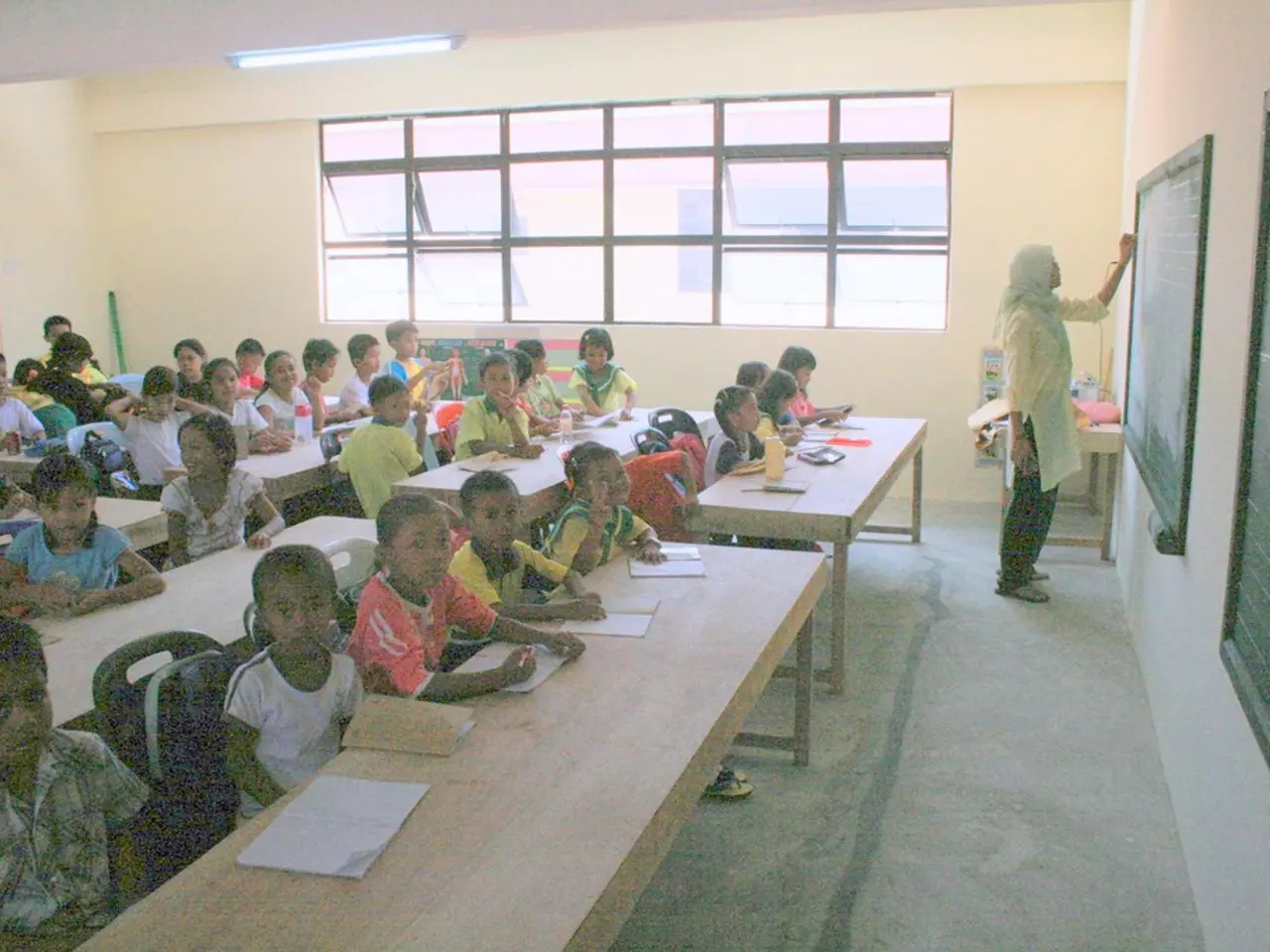AI's Role and Challenges in Special Education: Exploring Legal Implications
In an effort to enhance special education, schools are increasingly integrating Artificial Intelligence (AI) into their teaching practices. However, it's crucial to approach this technology thoughtfully and proactively, ensuring its use supports, rather than replaces, professional judgement.
The school's AI policy should be clear about the role of AI as a tool to aid, not supplant, the expertise of educators. Teachers must maintain their autonomy when making decisions, even when using AI-generated documents or recommendations. This approach not only protects teachers from liability but also preserves the human touch that is essential in education.
Transparency in the use of AI for student programming is key to easing concerns about individualized support. Schools should make it clear that AI is being used to streamline administrative tasks, personalize learning experiences, and offer real-time feedback, rather than replace human decision-making.
AI can have both positive and negative impacts on teacher agency and the perception of students with disabilities. On the one hand, AI tools can enhance teacher capacity and efficiency, allowing for more time for direct instruction and personalized support. On the other hand, over-reliance on AI can diminish teacher judgment and potentially reinforce biases affecting students with disabilities.
To mitigate these issues, schools should adopt strategies that preserve teacher agency, ensure inclusive AI design, provide ongoing professional development, and promote equitable access. Maintaining human oversight of AI systems is essential to respect educators' expertise, while developing and auditing AI for algorithmic fairness helps prevent biases against students with disabilities.
Providing targeted training on AI tools and ethical implications equips educators to critically interpret AI outputs and integrate AI thoughtfully in their pedagogy. Investing in infrastructure and affordable AI technologies addresses the digital divide, ensuring AI resources are accessible to schools and students in underserved communities.
Balancing the use of AI to promote student independence is also crucial. Combining AI personalization with encouragement of critical thinking and self-regulated learning helps avoid student over-dependence on AI.
In conclusion, AI in special education can empower teachers by automating routine tasks and enabling personalized learning, positively affecting perceptions of students with disabilities. However, careful human oversight, inclusive design, and equitable access are essential to safeguarding teacher agency and preventing biases that could harm student outcomes.
Best practice guidelines emphasize that AI should support teachers' professional judgment, not replace it. Schools need to support teachers as they navigate shifting professional roles to ensure AI is used to help, not replace them. Creating specific statements about the school's approved AI programs for student programming is vital to maintain transparency and ensure families feel their child's education is tailored to their unique needs.
- The school's AI policy should be designed to ensure that AI acts as a tool to aid teachers, not replace their expertise, in the process of education and self-development.
- Transparency in the use of AI for student learning is important to assuage concerns about individualized support, with schools clarifying that AI is used to streamline tasks, personalize experiences, and offer real-time feedback.
- AI in special education can enhance teacher capacity and efficiency, allowing for more time for direct instruction and personalized support, but over-reliance on AI could diminish teacher judgment and potentially reinforce biases.
- To mitigate these potential issues, schools should adopt strategies that preserve teacher agency, ensure inclusive AI design, provide ongoing professional development, and promote equitable access to AI resources.
- Creating specific statements about the school's approved AI programs for student programming is essential to maintain transparency and ensure families believe their child's education is tailored to their unique needs.




